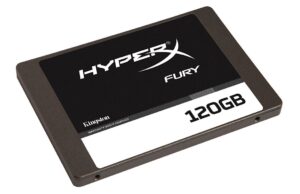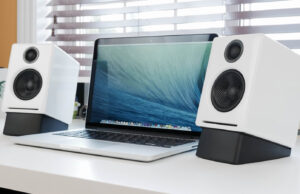Best 8 Capture Cards of 2018

We review eight of the best capture cards of 2018, including their pros and cons as well as pricing information. Whether you’re looking for an internal or external card, or you need Windows or Linux compatibility, these reviews will point you in the right direction for all your gaming storage needs.
Product |
Description |
Price |
|---|---|---|
Elgato Game Capture HD60S |
Recording Quality: 1080p, 60 FPS PC Connection: USB 3.0 |
|
HDML-Cloner Box Resolve |
Recording quality: 1080p, 30 FPS PC Connection: USB 2.0 |
|
Hauppauge Colossus 2 |
Recording quality: 1080p, 60 FPSPC Connection: USB 3.0 |
|
Pyle PVRC43 |
Recording quality: 480p, 30FPSPC Connection: USB 2.0 |
|
AVerMedia Live Gamer Extreme |
Recording quality: 1080p, 60 FPSPC Connection: USB 3.0 |
|
Elgato Game Capture HD60 PRO |
Recording quality: 1080p, 60 FPSPC Connection: PCIe |
|
AVerMedia Live Gamer HD 2 |
Recording quality: 1080p, 60 FPSPC Connection: PCIe |
|
Roxio Game Capture HD PRO |
Recording quality: 1080p, 30 FPSPC Connection: USB 2.0 |
Best 8 Capture Cards of 2018
If you’re a regular gamer using a console, you know that a capture card is one of the most important tools you can invest in. Without one, you can’t record gameplay and move it to your PC or store it externally.
There are tons of capture cards on the market, but they aren’t created equal. Taking the time to compare their various features and limitations will help you choose the best capture card for your particular gaming and storage needs.
Elgato Game Capture HD60S
Recording Quality: 1080p, 60 FPS
PC Connection: USB 3.0
This card is manufactured in Germany by a company that produces a wide range of excellent electronics and software. This external capture card is a plain looking black box that is easy to plug into your computer (USB cable) or TV (HDMI cable).
Pros |
Cons |
|---|---|
|
|
Quality |
Price |
Rating |
|---|---|---|
$$$ |
HDML-Cloner Box Resolve
Recording quality: 1080p, 30 FPS
PC Connection: USB 2.0
This capture card is manufactured by a company that’s only been in business since 2014, so making the Best of 2018 list is something of a coup for them. They manufacture a wide variety of software and hardware. Their Evolve is a standalone capture card that can process 4K video and scale it down to 1080p resolution without having to be attached to your computer. Its limitations, however, mean casual users will be satisfied, but not serious gamers.
Pros |
Cons |
|---|---|
|
|
Quality |
Price |
Rating |
|---|---|---|
$$$ |
Hauppauge Colossus 2
Recording quality: 1080p, 60 FPS
PC Connection: USB 3.0
Hauppauge is an experienced U.S. based hardware company with a reputation for superior multimedia and television products. They’ve taken that knowledge and applied it to their internal capture card. The card looks like an internal sound card that is connected to your PC’s motherboard using a PCIe slot. This card has tons of functions and it is extremely versatile, allowing for streaming that is easy and quick.
Pros |
Cons |
|---|---|
|
|
Quality |
Price |
Rating |
|---|---|---|
$$$ |
Pyle PVRC43
Recording Quality: 480p, 30FPS
PC Connection: USB 2.0
Pyle has been making audio equipment since the 1960’s and is a new contender in the video and multimedia arenas. The PVRC43 capture card is an impressive entry into the field. It’s a standalone that doesn’t have to be connected to a computer to work.
Pros |
Cons |
|---|---|
|
|
Quality |
Price |
Rating |
|---|---|---|
$$$ |
AVerMedia Live Gamer Extreme
Recording Quality: 1080p, 60 FPS
PC Connection: USB 3.0
Based in Taiwan, AVerMedia quickly became well known for the quality and range of their audio/video equipment in the 1990s. Their Live Gamer Extreme capture cards are external cards catering to serious gamers looking for high quality streaming.
Pros |
Cons |
|---|---|
|
|
Quality |
Price |
Rating |
|---|---|---|
$$$ |
Elgato Game Capture HD60 PRO
Recording quality: 1080p, 60 FPS
PC Connection: PCIe
Pros |
Cons |
|---|---|
|
|
Quality |
Price |
Rating |
|---|---|---|
$$$ |
AVerMedia Live Gamer HD 2
Recording Quality: 1080p, 60 FPS
PC Connection: PCIe
Another repeat performer, the Live Gamer HD 2 by AVerMedia is the second of AVerMedia’s capture cards to make the list. It builds on the earlier success of the company’s earlier Live Gamer HD but introduces some nice improvements. It’s an internal card with an unusual design. The sleek metal exterior features a pattern of triangle-shaped holes and a flashing LED light. It looks cool, but that’s not the only reason to appreciate it.
Check out the “pros” below to learn more.
Pros |
Cons |
|---|---|
|
|
Quality |
Price |
Rating |
|---|---|---|
$$$ |
Roxio Game Capture HD PRO
Recording quality: 1080p, 30 FPS
PC Connection: USB 2.0
Roxio makes a large array of multimedia products but has only been in business since 2001. For a relative newcomer, the company makes a decent, inexpensive capture card that they’ve tagged as “PRO,” but that isn’t accurate. This is a budget capture card that’s convenient but not powerful enough for true pro projects.
In the casual gamer arena, however, it does its job well.
Pros |
Cons |
|---|---|
|
|
Quality |
Price |
Rating |
|---|---|---|
$$ |
What to Look For In a Capture Card
There are four essential things to look for in a capture card. They are:
- Software – Each capture card manufacturer has its own software built into the card to record and stream the images. Look for software that makes recording easy and has multiple functions such as streaming overlays, adding webcam over play and adding comments.
- Image – The video images should be high quality with excellent resolution. The number of frames per second that can be recorded is also important. Look for full HD or at least 1080p. The top of the line cards can even record in Ultra HD or 4K.
- Interface – How a capture card connects to your computer. The most common is a USB connection, which is easy to set up and use. There is also PCIe, which is harder to set up, but can record footage without any pauses or delays.
- Input – A capture card is useless if you don’t purchase one that has the correct input for your gaming device. Most systems, including xBox One, xBox 360, PlayStation 3 & 4 and WiiU, use HDMI. Some other systems use component video input (component cables). One system that relies on these is the Nintendo 64.
We’ve looked at dozens of capture cards and evaluated them for the elements above in order to bring you a list of what we feel are the best ones for 2018. We looked at overall functionality, image quality and compatibility with gaming systems and computers. Which one is best for you will depend partly on the equipment you use, so be sure you check on compatibility before purchasing.
It’s obvious there are many capture cards available for both serious gamers and casual users. There is no one card that’s ideal for everybody and compatible with all systems. Do a bit of homework on your own to find the perfect card for your gaming needs.




















